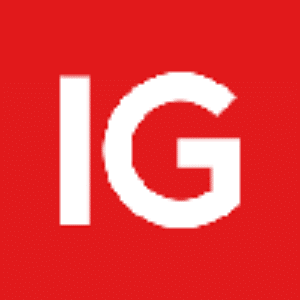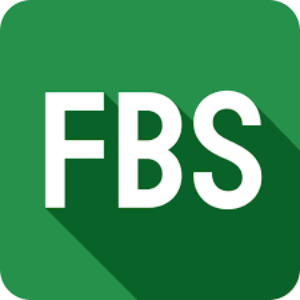
Finding the right forex broker can be overwhelming, especially in a market as vast and complex as the foreign exchange. The best forex brokers in the USA offer reliable trading platforms, competitive fees, and a solid reputation for safety and transparency. As I explore the options available, I’ll help you navigate what to look for so you can make informed choices that suit your trading style and needs.
In this article, I will highlight top contenders for the best forex brokers in the USA. With my insights, you’ll discover the features that set these brokers apart, such as regulatory compliance, available trading tools, and user experiences. Whether you are a beginner or a more experienced trader, understanding your options can significantly impact your success in the forex market.
Let’s dive into the details that will help you choose the right broker for your trading journey and maximize your potential in this exciting financial arena.
Key Takeaways
- The best forex brokers provide a mix of safety, features, and competitive fees.
- Broker platforms should offer user-friendly experiences and effective trading tools.
- Understanding broker regulations ensures a safer trading environment for all users.
Criteria for Ranking the Best Forex Brokers
When choosing the best forex brokers, it’s important to consider multiple factors that affect trading experience. Each broker has unique features that can significantly impact your trading success. Below are key criteria to help evaluate and rank these brokers.
1. Regulatory Compliance and Reputation
Regulatory compliance is crucial when selecting a forex broker. In the U.S., brokers must be regulated by the Commodity Futures Trading Commission (CFTC) and the National Futures Association (NFA). This regulation ensures that brokers adhere to strict standards that protect traders.
I prioritize brokers that demonstrate strong reputations within the trading community. A broker’s compliance with regulations not only impacts their legitimacy but also their transparency. Brokers that are regulated tend to have better safeguards against fraud and unethical practices. Researching customer reviews and industry ratings might provide additional insight into a broker’s reliability.
2. Trading Platforms and Technology
The trading platform I use significantly affects my trading experience. I look for brokers that offer user-friendly electronic trading platforms, such as MetaTrader 4 (MT4) or custom platforms that suit various trading styles.
A good platform should provide access to advanced charting tools, real-time data, and automated trading options. I also value mobile compatibility, as I like to trade on-the-go using my smartphone. The technology behind a broker’s platform can directly influence execution speed and reliability, which are essential in the fast-paced forex market.
3. Account Types and Minimum Deposits
Flexibility is key when it comes to account types offered by forex brokers. I prefer brokers that provide various account options catering to different trading strategies and risk levels. For example, having options for demo accounts allows beginners to practice without financial risk.
Moreover, I pay attention to the minimum deposit requirements. Some brokers let me start trading with a low minimum deposit, which is useful for beginners. Brokerages with tiers based on deposits can also offer varied benefits, from personalized support to lower trading costs.
4. Customer Service and Support
Customer support is another vital factor. I need access to responsive and knowledgeable support when I encounter issues or have questions about my account. Brokers should offer multiple channels for support, including phone, email, and live chat.
I focus on whether support is available 24/7, particularly because forex markets operate continuously. Quick response times and efficient resolutions can make a significant difference in my trading experience. Some brokers also provide educational resources, which further enhances customer support.
5. Fees, Spreads, and Commissions
Understanding the cost structure is essential for effective trading. I examine any commission fees, spreads, and other trading costs associated with a forex broker. Competitive pricing can greatly improve my profitability.
I prefer brokers that offer tight spreads, especially for major currency pairs. Additionally, transparent fee structures help me avoid unexpected costs that might erode my profits. Many brokers provide detailed breakdowns of their fees on their websites, allowing me to make informed comparisons easily.
Understanding Forex Trading for Beginners

Forex trading involves buying and selling currency pairs to profit from fluctuations in exchange rates. New traders need to grasp the basics of how the forex market works, manage risks effectively, and create sound trading strategies to succeed.
Introduction to Forex Markets
The forex market is the largest financial market in the world, operating 24 hours a day. Here, traders exchange currencies in pairs, like EUR/USD or GBP/USD. Understanding these currency pairs is essential for anyone looking to trade.
New traders should familiarize themselves with the concept of leverage, which allows them to control larger positions with smaller amounts of capital. While leverage can enhance potential profits, it also increases risk, making effective risk management crucial.
Starting with a demo account is a practical way to learn. A demo account allows me to practice trading without financial risk. I can test strategies, understand market behavior, and build confidence before trading with real money.
Risk Management for New Traders
Risk management is a key part of successful trading. As a beginner, I must accept that losing trades are inevitable. The goal is to manage losses to protect my trading capital.
To do this, I can set stop-loss orders, which automatically close a trade at a predetermined loss. I also need to determine my risk tolerance. A common practice is to risk only a small percentage of my trading account on each trade, typically between 1-2%.
Additionally, understanding the impact of market news and events is crucial. Economic indicators, interest rates, and geopolitical events can move the market quickly. I should stay informed to make educated trading decisions and adjust my strategy as necessary.
Developing a Trading Strategy
Creating a trading strategy is vital for long-term success. I can use various trading strategies, like day trading, swing trading, or position trading, depending on my goals and risk tolerance.
A solid strategy includes identifying entry and exit points, defining position sizes, and using technical analysis tools. I should also keep a trading journal to track my performance and learn from my experiences.
By testing my trading strategy on a demo account first, I can refine it before committing real funds. It’s also helpful to review and adjust my strategy based on market conditions and personal experiences, ensuring continuous improvement on my trading journey.
Review of Top Forex Brokers
When looking for the best forex brokers in the USA, several key factors can make a broker stand out. Features like regulation, trading platforms, fees, and customer service are important to consider. I will discuss some of the leading options available in the market.
1. IG Markets
IG Markets is one of the foremost names in forex trading. It is highly regarded for its extensive range of currency pairs, advanced trading tools, and a user-friendly interface. IG offers a robust trading platform that includes features like advanced charting and automated trading options.
This broker is regulated by the Commodity Futures Trading Commission (CFTC), ensuring adherence to strict standards. They also provide a demo account, which is excellent for beginners to practice without risking real money. Additionally, IG Markets offers competitive spreads and no minimum deposit for most accounts, making it accessible to various traders.
| Core Features | |
| Trading Platform | Proprietary + MT4 |
| Currency Pairs | 80+ |
| Customer Support | 24/5 |
| Account Types | Standard, Professional |
| Unique Tools | ProRealTime charting, L2 Dealer |
| Strengths | |
| Most extensive range of currency pairs among US brokers | |
| Advanced charting package with ProRealTime integration | |
| Competitive spreads starting from 0.8 pips on EUR/USD | |
| Powerful risk management tools | |
| Award-winning mobile trading app | |
| No minimum deposit requirement | |
| Extensive market analysis and research tools | |
| Multiple platform options including MT4 | |
| Advanced DMA (Direct Market Access) for professional clients | |
| Considerations | |
| Higher spreads during off-peak hours | |
| Complex platform interface may overwhelm beginners | |
| Premium tools like ProRealTime require minimum activity levels | |
| Weekend fees apply for certain positions | |
2. Oanda Corporation
Oanda is another top forex broker that excels in providing excellent data and analytical tools. It offers a wide variety of currency pairs and options for trading. Their trading platform supports both beginners and experienced traders.
With a strong reputation for reliability, Oanda is also regulated by the CFTC. Their pricing structure is transparent, with competitive spreads and no hidden fees. Traders can enjoy features like historical data analysis and the use of MetaTrader 4 (MT4) for advanced trading strategies. A significant advantage is their flexible minimum deposit requirement, allowing traders to start with a manageable amount of capital.
| Core Features | |
| Trading Platform | fxTrade + MT4 |
| Currency Pairs | 70+ |
| Customer Support | 24/7 |
| Account Types | Standard, Premium |
| Unique Tools | API suite |
| Strengths | |
| Advanced API capabilities | |
| Excellent for automated trading | |
| Competitive pricing structure | |
| No minimum deposit | |
| Historical market data access | |
| Custom position sizing | |
| Flexible leverage options | |
| Advanced technical analysis suite | |
| Institutional-grade execution | |
| Considerations | |
| Limited additional features beyond forex | |
| Higher spreads during volatile markets | |
| Basic research tools compared to competitors | |
| Premium features require larger deposits | |
3. FOREX.com
FOREX.com is widely known for its extensive educational resources and customer service. The broker provides access to over 80 currency pairs, along with futures and options trading. It has a powerful trading platform ideal for both novice and advanced traders.
Regulated by the CFTC and affiliated with the National Futures Association (NFA), FOREX.com is a trustworthy choice. Their features include advanced charting tools and automated trading capabilities. I appreciate their competitive pricing, and the broker often offers promotional bonuses to new clients, enhancing the appeal for many traders.
| Core Features | |
| Trading Platform | Proprietary + MT4/MT5 |
| Currency Pairs | 70+ |
| Customer Support | 24/7 |
| Account Types | Standard, Commission, STP Pro |
| Unique Tools | Trading Central integration |
| Strengths | |
| User-friendly, intuitive trading interface | |
| Comprehensive educational resources | |
| Regular market analysis and trading insights | |
| Performance analytics dashboard | |
| Competitive spreads on major pairs | |
| Reliable execution speeds | |
| Advanced TradingView charts integration | |
| Mobile app with full trading capabilities | |
| Regular webinars and trading tutorials | |
| Considerations | |
| $100 minimum deposit requirement | |
| Limited cryptocurrency offerings | |
| Higher spreads on exotic pairs | |
| Some advanced features require larger deposits | |
4. Interactive Brokers
Interactive Brokers is well-regarded for its comprehensive range of services. This broker caters to experienced forex traders looking for sophisticated trading tools and extensive market research.
They provide access to numerous currency pairs and advanced order types. Regulated by the CFTC, Interactive Brokers is known for low trading fees and good execution speeds. The platform supports advanced trading strategies, making it suitable for professional and active traders. The minimum deposit can be higher compared to other brokers, but the wide range of features justifies it.
| Core Features | |
| Trading Platform | Trader Workstation (TWS) |
| Currency Pairs | 115+ |
| Customer Support | 24/6 |
| Account Types | IBKR Pro, IBKR Lite |
| Unique Tools | IBot AI assistant |
| Strengths | |
| Lowest margin rates in the industry | |
| Advanced order types and algorithms | |
| Sophisticated trading platform (TWS) | |
| Extensive market research tools | |
| Global market access across multiple assets | |
| Professional-grade API solutions | |
| Comprehensive risk management suite | |
| Advanced portfolio analysis tools | |
| Institutional-grade execution quality | |
| Considerations | |
| Complex platform learning curve | |
| Monthly inactivity fees may apply | |
| Higher learning curve for beginners | |
| Minimum activity requirements for some features | |
5. TD Ameritrade
TD Ameritrade stands out for its superior educational resources and customer service. This broker also offers forex trading among other financial products, making it a versatile option for traders.
They feature a user-friendly platform equipped with advanced tools and personalized research. Regulated by the CFTC, TD Ameritrade ensures a secure trading environment. The broker has a no minimum deposit requirement for standard accounts, allowing flexibility for beginners. Their extensive range of currency pairs makes it an appealing choice for many traders.
| Core Features | |
| Trading Platform | thinkorswim |
| Currency Pairs | 75+ |
| Customer Support | 24/7 |
| Account Types | Standard |
| Unique Tools | thinkScript custom indicators |
| Strengths | |
| Powerful thinkorswim platform integration | |
| Commission-free forex trading | |
| Extensive educational resources | |
| 24/7 customer support | |
| Robust mobile trading capabilities | |
| Integrated multi-asset trading | |
| Advanced technical analysis tools | |
| Paper trading available | |
| Strong research offerings | |
| Considerations | |
| Limited currency pairs compared to competitors | |
| Higher spreads on exotic pairs | |
| Complex platform for beginners | |
| Some features require minimum balance | |
Platform Features and Trading Tools

When choosing the best forex brokers in the USA, it’s important to look at various platform features and trading tools. These elements can greatly enhance my trading experience, help with analysis, and streamline my trading strategies.
Charting and Analytics
Effective trading relies heavily on robust charting and analytics tools. I prefer platforms that provide advanced charting options, such as those found in MetaTrader 4 and MetaTrader 5. These platforms include a variety of technical indicators, drawing tools, and customizable charts.
In addition, platforms like TradingView are popular for their user-friendly interface and interactive features. They allow me to perform technical analysis efficiently, helping me to spot trends and make informed decisions. With tools for backtesting various strategies, I can improve my trading skills over time. Accessibility to real-time data also ensures that I stay updated with market movements.
Automated Trading Solutions
Automated trading systems are a game changer for many traders, including me. They offer the ability to execute trades without constant monitoring. Using platforms that support algorithmic trading, I can implement trading bots to automate my strategies.
These systems can analyze market conditions and execute trades based on predefined criteria. Many brokers provide access to features like copy trading, which allows me to replicate the trades of experienced traders. This option can be beneficial for those still learning the ropes of trading while also achieving market exposure.
Mobile Trading Capabilities
In today’s fast-paced world, having mobile trading capabilities is essential. I prefer brokers that offer a comprehensive mobile trading app. These apps should include the same charting tools and analytics found on desktop platforms.
With a good mobile app, I can monitor my trades, react to market changes, and stay in touch with my trading strategies while on the move. Features like push notifications alert me to important market events. This immediacy helps me to seize trading opportunities no matter where I am. User-friendly interfaces in these apps make managing my portfolio straightforward and efficient.
Forex Trading Education and Resources

Understanding the importance of education and practical experience is crucial for anyone looking to trade foreign exchange. I focus on how educational content can provide valuable insights and how demo accounts can offer essential hands-on practice for traders.
Leveraging Educational Content
Many brokers offer a variety of educational resources tailored for both beginners and experienced traders. Materials may include online courses, webinars, and detailed articles. For example, TradingView provides advanced charting tools and community insights, which can enhance learning.
Utilizing platforms with user-friendly educational content allows me to grasp complex trading strategies and market analysis effectively. Educational resources teach me about trading terminology, risk management, and technical analysis. Whether I prefer video tutorials or written guides, these materials are critical in building a solid trading foundation. Moreover, brokers like IG Group provide extensive resources that cover various trading methods, making them great options for new traders.
Benefits of Demo Accounts
Demo accounts simulate real trading environments, allowing me to practice without financial risk. Most top forex brokers offer these accounts, enabling me to familiarize myself with trading platforms and strategies. For instance, using an account to experiment with orders and chart analysis helps boost my confidence.
A demo account also allows me to test various trading strategies with virtual funds. It’s a helpful way to learn how market conditions can affect trades. I can practice social trading techniques by copying strategies from experienced traders. This hands-on experience is invaluable as it prepares me for live trading situations while ensuring I understand the gains and losses involved.
Trading Accounts and Options

When exploring forex trading, it is essential to understand the different types of trading accounts, leverage options, and the importance of liquidity in the forex market. Each aspect plays a vital role in managing risk and making informed investment choices.
Comparing Account Types
Forex brokers offer various trading accounts to suit different trader needs. Common account types include standard, mini, and micro accounts.
- Standard Accounts: Typically require a higher minimum deposit, often around $1,000. They allow trading in standard lots, which is 100,000 units of currency.
- Mini Accounts: Aimed at beginners, these usually start with a minimum deposit of $100 to $500 and allow trading in mini lots of 10,000 units.
- Micro Accounts: These accounts require even smaller deposits (as low as $10) and enable trading in micro lots of 1,000 units.
Choosing the right account type affects trading flexibility and leverage options, impacting potential profitability and risk exposure.
Understanding Leverage and Margins
Leverage is a crucial concept in forex trading. It allows traders to control larger positions with a relatively small amount of capital. For instance, a leverage ratio of 50:1 means I can control $50,000 with just $1,000. While this amplifies potential profits, it also increases the risk of substantial losses.
Margins are the funds required to open a position. A broker may set a specific margin percentage, which is crucial to know when placing trades. One must fully understand both leverage and margin to manage risks effectively. High leverage may sound appealing, but it can lead to rapid losses in a volatile market.
Importance of Liquidity in Forex
Liquidity refers to how quickly I can buy or sell a currency pair without significantly affecting its price. The forex market is known for its high liquidity, especially for major currency pairs like EUR/USD or USD/JPY.
High liquidity means I can enter and exit trades with ease. This ensures tighter spreads and better pricing, which is essential for successful trading. Conversely, lower liquidity can lead to slippage, where the execution price differs from what I expected.
Understanding liquidity helps me choose the right times to trade, maximizing potential earnings while minimizing risks.
Extras and Unique Features
I find that choosing a forex broker isn’t just about spreads and commissions. Many brokers offer unique features that enhance the trading experience. This section focuses on two significant extras: copy trading services and special programs for high-volume traders.
Copy Trading Services
Copy trading is a popular feature among forex brokers. It allows traders to mimic the strategies of experienced traders. Many platforms provide a selection of successful traders to follow. As a user, I can allocate a portion of my capital to automatically copy trades. This feature is especially beneficial for beginners who want to learn from seasoned professionals without deep technical know-how.
For example, some brokers incorporate technical indicators to help users choose which trader to follow. This option provides transparency and a learning experience within the market. Additionally, I can often view each trader’s past performance stats, which helps in making informed choices.
Special Programs for High-Volume Traders
High-volume traders can benefit from specialized programs designed to enhance their trading advantage. Programs like the Elite Trader Program and the Active Trader Program may offer perks such as lower spreads, rebates, and access to exclusive research tools.
These programs often come with minimum volume requirements but reward active traders with significant savings. For instance, I might find that a broker offers tiered pricing structures where the more I trade, the better my fees become. This feature is particularly attractive for those who trade frequently, as it can lead to substantial savings on trading costs.
In summary, looking beyond the basics can reveal valuable extras that cater to different trading styles and needs.
Selecting the Right Broker for Your Trading Needs
Choosing a broker that fits your trading style is crucial. You need to assess key features like trading platforms, costs, and customer service to ensure a smooth experience. By focusing on these factors, I can help you find a broker best suited for your needs.
Matching Broker Features to Your Trading Style
Different traders have unique styles, from beginners to experienced professionals. Considering my trading approach is vital when selecting a broker.
For example, if you prefer day trading, look for brokers with low commission costs and fast execution speeds. A user-friendly trading platform, like MetaTrader 4 (MT4), can enhance your trading experience significantly.
On the other hand, swing traders may benefit from brokers that offer advanced charting tools. Features like automated trading options can save time and support your strategies. Always check if the broker provides a demo account for practice, which can be invaluable in refining your skills.
Assessing Broker Reliability and Service Levels
Reliability is a top concern for forex traders. It’s essential to choose a broker regulated by the Commodity Futures Trading Commission (CFTC) or the National Futures Association (NFA). This helps ensure your funds are secure and the broker adheres to strict guidelines.
Customer service plays another important role. A broker with responsive support can help resolve issues quickly, allowing me to focus on trading. Look for brokers that offer multiple support channels, such as live chat, email, and phone support.
In addition, consider reading customer reviews to gauge others’ experiences with the broker. A transparent fee structure and easy-to-navigate platform can greatly enhance my trading journey. Choosing a broker that meets these criteria will help set a strong foundation for successful trading.









